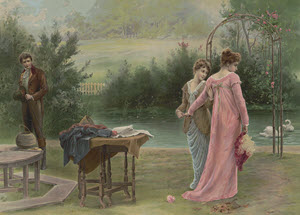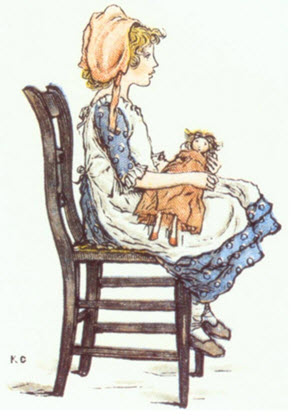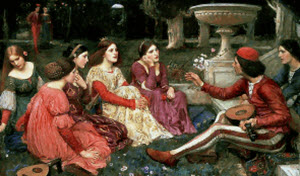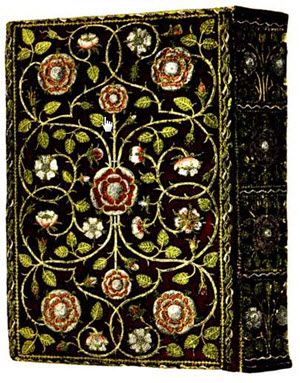EDGAR ALLAN POE - Part 3
It is as easy to see that Poe's poetry and prose suggest the story, which he himself related. He called the lady Helen because he did not like her real name, Jane. The change was evidently made by a poet with a mature ear; that is, after he had written ( To Helen,; which is to nobody in particular. Poe's ladies are as visionary as the Julias and Altheas of Herrick. The difference is that Herrick expressed a fleshly warmth toward ladies who never were, whereas Poe attached his visions, the creatures of a pretty name in his head, to what ever lady happened to be interesting him. He fitted poetic abstractions -the same poetic abstraction - to several women; and, since there is singularly little human passion in his work, it is likely that his conception of women was usually untinged by desires of the blood.
The grave-haunting yarn belongs in Poe's biography because he made it and because it may have root in fact. At the age of thirty-nine, a year before his death, Poe referred to this story in a letter to a poetess. Poets and poetesses communicate and receive ideas which the facts of life do not support.
It is not necessary either to take too seriously the story of Poe's attachment to Sarah Elmira Eoyster, his young neighbour, except to credit her statement that her father intercepted Poe's letters. Miss Eoyster was presently married at the age of seventeen. She appears later in Poe's life as the severe-lipped widow, Mrs. Shelton. For the present we may imagine him poetically desolate at her marriage.
In 1825 Mr. Allan came into his uncle 7 s fortune. The spendthrift habits by which Poe is
supposed to have been unfitted for his later life of poverty began now, if ever, and could
have continued but a year or so, for Poe abused his guardian's new wealth, and Mr. Allan
soon took him to task. Poe prepared under tutors for the University of Virginia, and
entered it on the 14th of February, 1826. This institution had been opened the year
before. Its distinguished founder lived a few months to enjoy the fatherhood of his
college and to find the practical difficulties in the methods of administration which he
had contrived. Jefferson's fine and high idea was to import European culture (six of the
eight professors were foreign-born), to make university education free, and to dispense
democratically with formal degrees and discipline. His dream was part of the early
American confidence in unhindered human nature.




